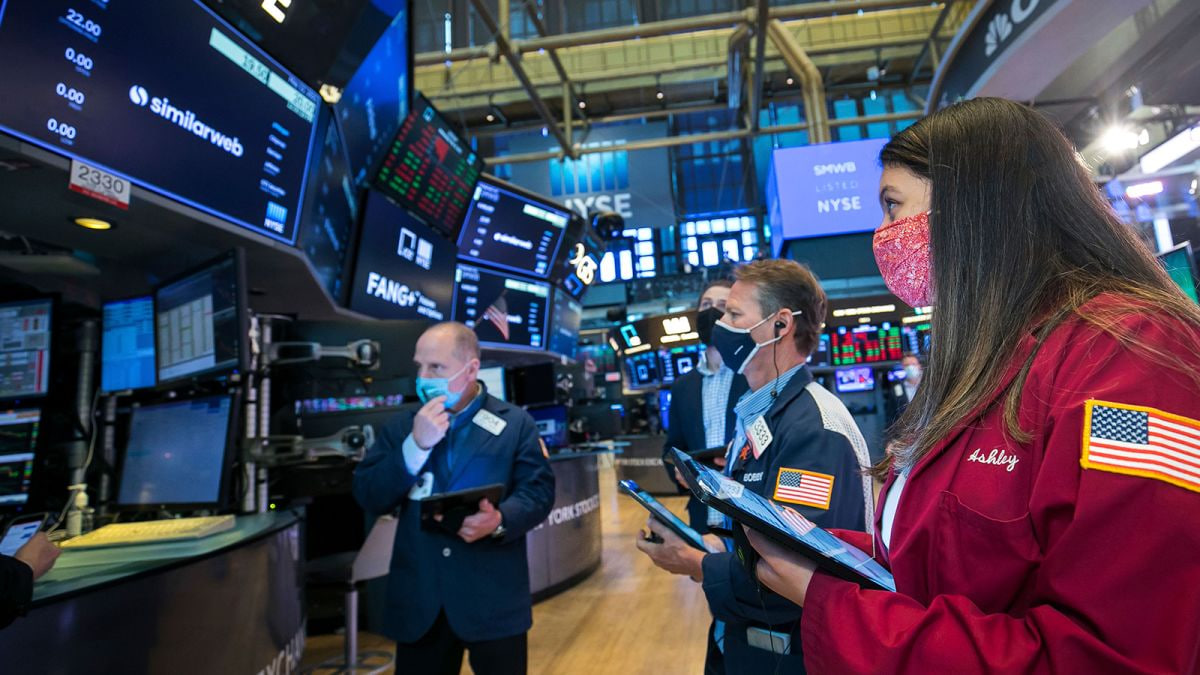Trump's Trade Nominee: Jamieson Greer and the Future of US Trade Policy
Meta Description: Jamieson Greer, Trump's nominee for US Trade Representative, promises a hawkish trade policy focused on tariffs, decoupling from China, and protecting American industries. Learn about his background, potential policies, and the implications for global trade. #JamiesonGreer #USTR #Trump #TradePolicy #USChinaTrade #Tariffs
Introducing Jamieson Greer: A Hawk's Eye View on US Trade
Hold onto your hats, folks! The world of international trade is about to get a whole lot more interesting. Donald Trump’s nomination of Jamieson Greer as the next US Trade Representative (USTR) sends shockwaves through global markets, promising a return to the aggressive, protectionist trade policies that defined Trump's first term. Forget subtle negotiations and gentle nudges – Greer's appointment signals a potential return to the era of hefty tariffs and a hardline stance against perceived unfair trade practices. This isn't just another political appointment; it's a potential game-changer for businesses, consumers, and international relations. This deep dive explores Greer's background, his likely approach to trade negotiations, and the potential consequences of his appointment for the US and the rest of the world. We'll analyze the implications of his past statements and actions, looking at the potential impact on specific sectors and countries, including China, Mexico, and Canada. Whether you're a seasoned trade expert or simply curious about the future of global commerce, this analysis will provide crucial insights and a clear understanding of what's at stake. Get ready for a roller-coaster ride – the trade winds are shifting!
Jamieson Greer: A Deep Dive into the Nominee's Background
Jamieson Greer, a name whispered in hushed tones within the corridors of trade policy circles, is no stranger to the cutthroat world of international commerce. Having served as Chief of Staff to Robert Lighthizer, Trump's previous USTR, Greer has been intimately involved in crafting and implementing some of the most controversial trade policies of the past decade. Think "Trump tariffs" – Greer was right there in the thick of it. His experience isn't limited to government service, though. His legal background at King & Spalding, a powerhouse law firm specializing in trade litigation and negotiation, further underscores his deep understanding of the complexities and intricacies of global trade. This isn't some political novice; this is a seasoned veteran with a proven track record – a track record that speaks volumes about his likely approach to the USTR role. He graduated from the University of Virginia School of Law, a fact that further solidifies his legal expertise and ability to navigate the often-murky waters of international trade law.
Greer's Stance on China: Decoupling and Confrontation?
Greer's testimony before the US-China Economic and Security Review Commission (USCC) in May this year sent a clear signal: he's unafraid of confrontation. His statement advocating for "strategic decoupling" from China, even at the cost of "short-term pain," clearly outlines his hardline stance towards China. This isn't just about trade imbalances; it's about a strategic shift in the US relationship with China, potentially impacting everything from supply chains to technological competition. This aggressive approach suggests a continuation, or even an intensification, of the trade war initiated during Trump's first term, raising concerns about potential economic repercussions for both the US and China. Greer is playing for keeps, and his approach could reverberate across the globe.
Potential Policies Under a Greer-Led USTR
If confirmed, Greer's tenure as USTR is likely to be characterized by:
- Aggressive Use of Tariffs: Expect a renewed focus on tariffs as a tool to address trade imbalances and protect American industries. This could target various countries, not just China.
- Renegotiation of Trade Deals: We might see attempts to renegotiate existing trade agreements to favor American interests, potentially leading to significant disruptions in global trade.
- Emphasis on Domestic Manufacturing: A major focus will likely be on boosting domestic manufacturing and reducing reliance on foreign suppliers.
- Increased Trade Disputes: We can anticipate a rise in trade disputes and challenges to the World Trade Organization (WTO) system.
Impact on Specific Sectors and Countries
The implications of Greer's appointment are far-reaching:
- Manufacturing: American manufacturers could see some short-term benefits from increased protection, but long-term competitiveness might suffer due to higher input costs.
- Agriculture: The agricultural sector might experience both benefits and challenges, depending on the specific trade policies implemented.
- Technology: The tech sector could face significant challenges due to potential restrictions on trade with China and other countries.
- China: China will likely respond aggressively to any further escalation of trade tensions, potentially leading to further economic uncertainty.
- Mexico & Canada: The USMCA (formerly NAFTA) could face renewed challenges, particularly if Greer seeks to renegotiate its terms.
Trump's Renewed Trade War Threats
Trump's recent threats to impose 25% tariffs on all imports from Canada and Mexico, and 10% on Chinese goods, highlight the potential for increased trade conflict under a Greer-led USTR. These threats, issued just weeks after his election victory, sent shockwaves through financial markets, demonstrating the immense power and potential volatility of trade policy decisions. This foreshadows a potential return to the unpredictable and confrontational trade environment that characterized much of Trump's first term.
The Role of the US Trade Representative
The USTR is a powerful position, responsible for negotiating trade agreements, enforcing trade laws, and advising the President on trade policy. The USTR's influence extends far beyond the realm of economics; it impacts national security, foreign policy, and the overall relationship between the US and the rest of the world. Greer's appointment suggests a shift towards a more assertive and protectionist approach to trade, potentially altering the global economic landscape in significant ways.
Frequently Asked Questions (FAQs)
Q1: Who is Jamieson Greer?
A1: Jamieson Greer is a lawyer with extensive experience in trade policy. He served as Chief of Staff to Robert Lighthizer, the USTR under Trump's first term, making him deeply familiar with the inner workings of the office and Trump's trade policies.
Q2: What are Greer's views on trade?
A2: Greer holds a hawkish stance on trade, advocating for strong protectionist measures, including tariffs and strategic decoupling from China. He prioritizes protecting American industries and reducing trade deficits.
Q3: What are the potential implications of Greer's appointment?
A3: His appointment could lead to increased trade tensions with countries like China, Mexico, and Canada. It could also result in renewed trade wars and a more protectionist US trade policy. Expect renegotiations of trade agreements and a stronger focus on domestic manufacturing.
Q4: How will this affect the US economy?
A4: The economic impact is uncertain. While some industries might benefit from protectionist measures, others could suffer from higher input costs and reduced access to global markets. The overall effect depends on the specific policies implemented and the responses of other countries.
Q5: What is the role of the USTR?
A5: The USTR is responsible for negotiating and implementing international trade agreements, representing the US in international trade forums, and advising the President on trade policy. It's a crucial position with significant influence on the US economy and foreign relations.
Q6: What is strategic decoupling?
A6: Strategic decoupling refers to reducing economic interdependence with another country, usually for national security or geopolitical reasons. In the context of US-China relations, it implies reducing reliance on China for various goods, services, and technologies.
Conclusion: Navigating Uncharted Waters
The nomination of Jamieson Greer as USTR marks a significant turning point in US trade policy. His appointment signals a potential return to a more confrontational and protectionist approach, potentially leading to increased trade tensions and economic uncertainty. While the long-term consequences remain to be seen, one thing is certain: the coming years will be a period of significant change and potentially volatile shifts in the global trade landscape. Buckle up; it's going to be a wild ride.



